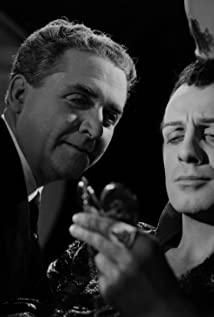The film tells about the emotional encounters of three pairs of characters, and thus highlights people's views on marriage and love. The main
line is the love between a lawyer and an actress, and there are many clues attached to the officer, the officer's wife, the lawyer's son and the lawyer's young wife, and two servants. There are strong connections and contrasts. The love between the two servants is primitive and full of animal instincts. Although it seems worldly, it is the most fundamental of love. At the same time, the maid has a strong possessiveness towards the butler (requiring marriage), which is also a transition from instinctive possession to social restraint of marriage. But this kind of natural love lacks restraint (for example, the maid said to the young lawyer's wife that there is a lot of male experience), so this kind of love cannot last long. The love between the officer and his wife is more of a social nature, showing the contract type of love. The officer is a possessive man while his wife is trying to keep her husband by her side. This peculiar relationship and reality ultimately led to the officer's license to the promise. At the same time, officers are nobles, and their marriages are more of a kind of marriage of social status. The lawyer's son and the lawyer's young wife end up together, showing Platonic love. The lawyer's wife is only 19 years old, about the same age as the lawyer's son, and has been married to the lawyer for 2 years without having sex. Therefore, she showed the innocent side of love, the desireless side. The son is a learning pastor who insists on human morality and has a youthful ideal. But the character, like the Bergman films that followed, has the ambivalence of a belief yet doubting belief. This shows Bergman's doubts and questions about theology.
These three groups of different aspects of love come back to compare the relationship between lawyers and actresses, and their love is more lifelike and more eclectic.
Xia Ye smiled a total of three times, and after three times, several couples got their own way. The cross-cut at the end of the film is excellent, although not as fancy as the end of "The Godfather 1", but it is a good comparison of the subtle psychological aspects of the couples. In addition, the dialogue of the film is very revealing, and the character performances are somewhat staged, but they are still appropriate to the overall style. The film earned Bergman his first international reputation, and was later considered the culmination of his early style by scholars who later studied Bergman, who later directed the well-known "Seventh Seal".
View more about Smiles of a Summer Night reviews











